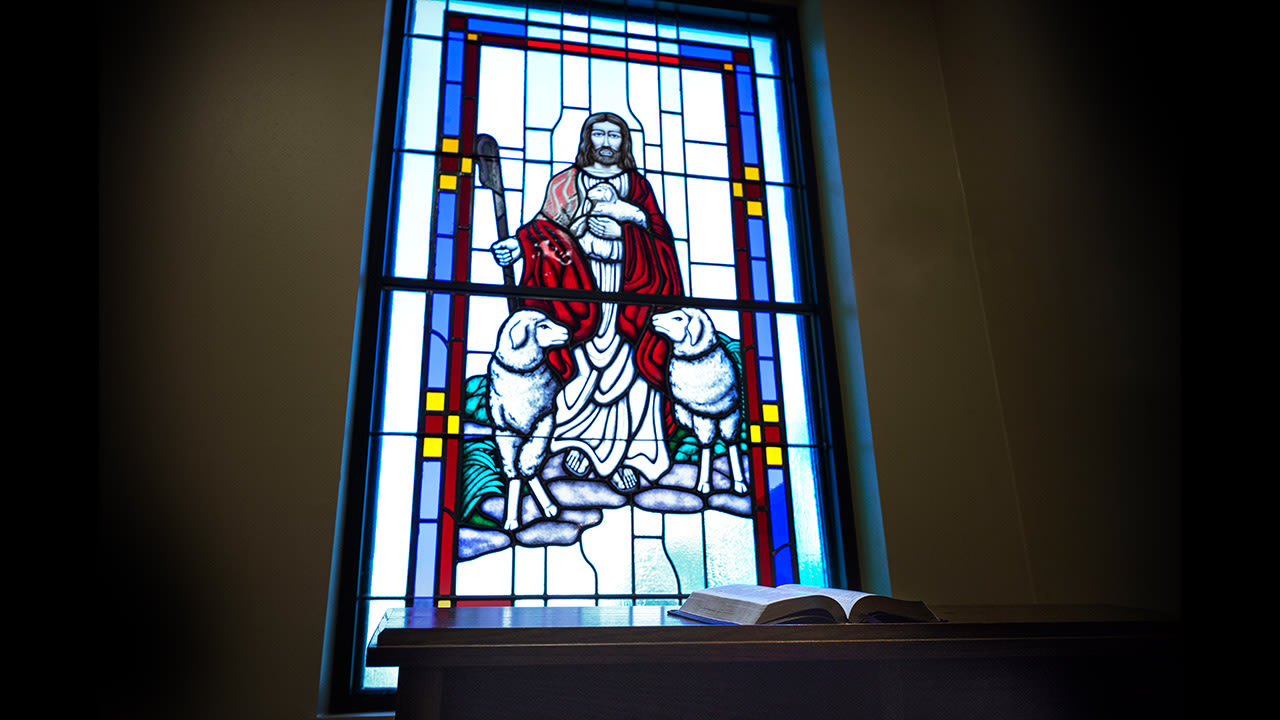When God Is Silent

A LITTLE BOY PRAYED, “Lord, please make Boulder the capital of Colorado.” His friend asked, “Why did you pray that?”
“Because that’s the answer I put on my exam.”
Obviously God might not answer that prayer. But what about legitimate prayers? Sometimes we make requests we think are in line with what God wants, but He seems silent. He seems to ignore us. We feel He has gone off and left us. He is distant, far off, unconcerned, and has abandoned us—or so it seems.
David prayed, “My God, my God, why have you forsaken me? Why are you so far from saving me? … O my God, I cry out by day, but you do not answer me” (Ps. 22:1–2). Many Christians feel that way today. “Why doesn’t he heal me?” “Why doesn’t God bring back my wayward son?” “Why did God take my spouse to heaven?”
When we feel like that, Psalm 22 offers us a guide through the dark.
Since some of the verses in this psalm seem like they are referring to Christ, some say all of it is prophetic of Christ. Yet it seems better to see the psalm as referring first to David’s experiences, with many of the statements then being applied to Christ. In other words, the psalm is recording primarily the experience of David, who was suffering at the hands of wicked men. The psalm shows us a progression of response to physical and emotional pain. These are steps David took, and they are also steps Jesus took.
Tell God your problem
(Ps. 22:1–2, 6–8, 11–18). Twice in the first verse David asked “Why?” Yet three times in the first two verses he said “My God.” Even though he wondered why God seemed absent, he voiced his problem to the Lord. On the cross Jesus voiced these same words. He felt forsaken by God the Father because He was bearing the sins of the world. As Peter wrote, Jesus “bore our sins in his body on the tree” (1 Pet. 2:24). And Isaiah wrote, “He was crushed for our iniquities” and “the Lord has laid on Him the iniquity of us all” (Isa. 53:5–6).
David said that God did not seem to hear his groaning (v. 1), and he said that God did not answer him either in the daytime or at night (v. 2). David also wrote that he felt like a worm—that is, insignificant and unwanted. People despised him, mocked him, and shook their heads at him. In David’s first petition in the psalm (v. 11) he asked that God not be far from him, because trouble was near. Then in figurative language he said that enemies surrounded him like bulls and scavenger dogs (vv. 12, 16), and they tore at him like lions (v. 13). His heart melted (v. 14), his bones were out of joint (v. 14), his strength was gone (v. 15), his body was pierced (v. 16), and he was so emaciated that his bones were exposed (v. 17). He was brutally honest in telling God that it didn’t seem as if He was hearing him.
Yet, though he felt abandoned by God, David did not denounce Him. We too should tell God our problem, even telling Him that He seems remote and aloof.
Remember His faithfulness
(Ps 22: 3–5, 9–10). Though God seemed distant, David knew God is holy and can be trusted. Though God was silent, He is still sovereign. In verses 3–5, David used the word “you” six times in referring to God. This shows that in his agony David focused on God and His holiness. Though puzzled, he still praised Him. David mentioned that his own “fathers” (ancestors) put their trust in Him, and so he wanted God to help him too. “You didn’t forsake them, so why forsake me?”
Then David reminded the Lord that He had nurtured him right from the moment of his birth; so why should He abandon him now? “Lord, You were faithful in the past, so be faithful now” (vv. 9–10).
Keep praying (vv. 19–21). David went on to voice several requests to God. He asked God to be not far off from him, to help him, to deliver him, to rescue him, and to save him. In referring to dogs, lions, and oxen, he reversed the order of these three animals from the order in which he mentioned them in verses 12–13 and 16.
Praise Him (vv. 22–31). Determined to praise the Lord (v. 22), David called on Israel to praise, fear, and revere Him (v. 23). David was sure that God does see those who are suffering and He hears their cry for help (v. 24). He said he would worship the Lord (v. 25), and then he called on the poor and the rich to praise Him (vv. 26–29), including all the families of the earth (v. 27). Even people not yet born would praise him (vv. 30–31).
In a storm at sea, apparent disaster was ahead. The son of author Robert Louis Stevenson was on board. So he went to the captain’s cabin and asked if something could be done about the bad situation. Just then the pilot turned and smiled. Stevenson’s son went back to the men and said, “I have good news.” “What do you mean?” they asked. He said, “I’ve just seen the pilot’s face, and that’s enough.” We have seen the pilot’s face, and it tells us enough to know all will be well.


